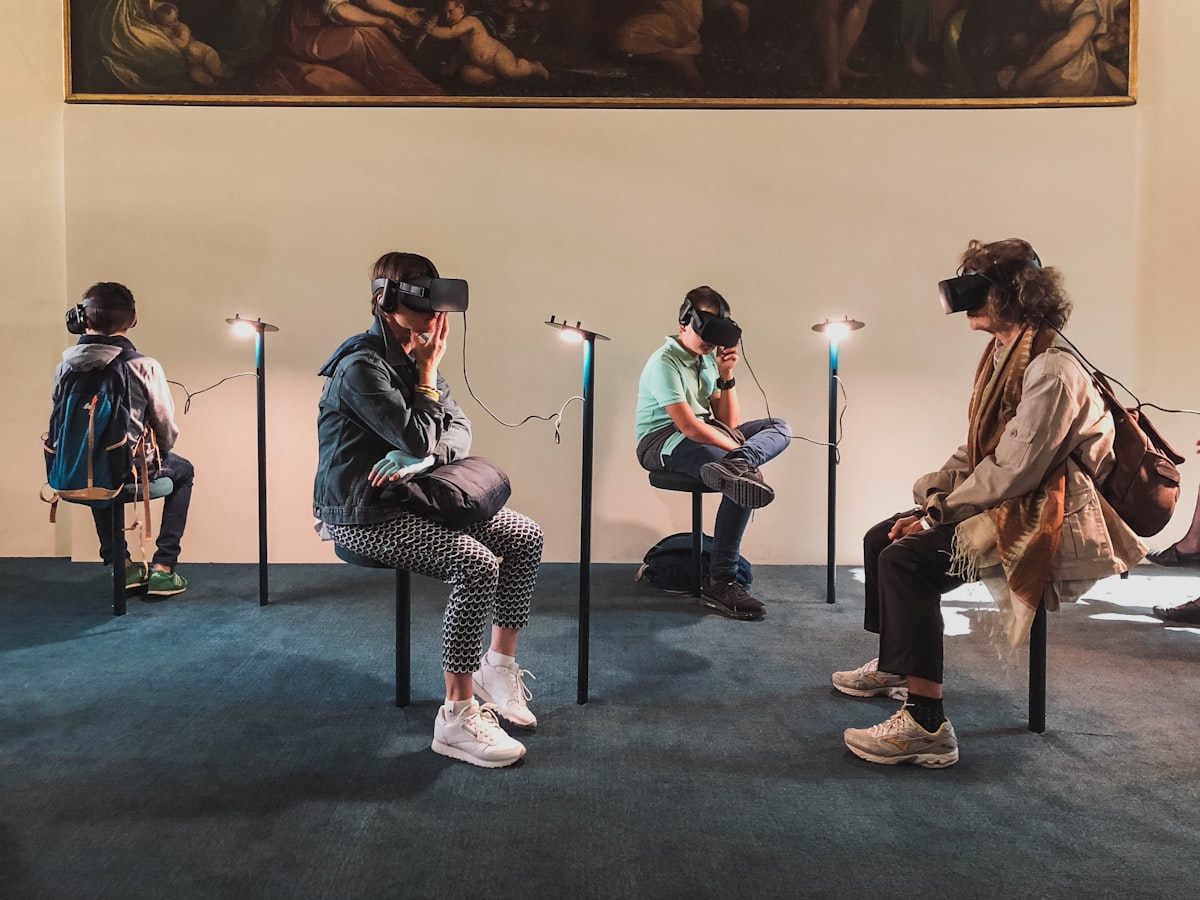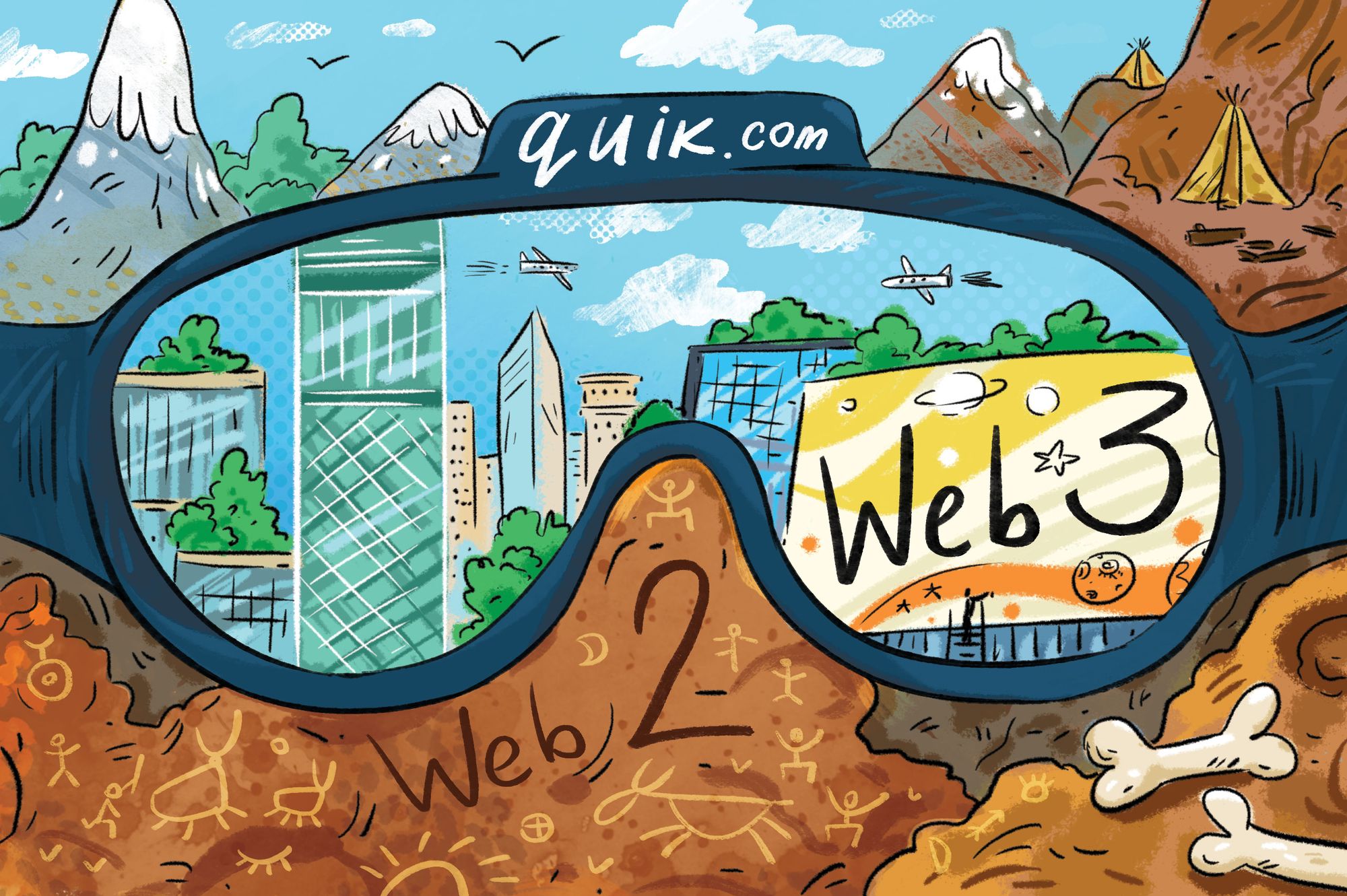The Future of Metaverse - My Views
When I first heard the term "metaverse," it was undoubtedly a novel concept at the time. However, it still had a much better futuristic slant, and given how quickly technology is developing, it is unquestionably living up to my expectations.

As innovations and creations modernize humanity, the word "metaverse" has become considered natural. Emerging VR/AR/XR technologies are even enhancing the virtual realm. However, the metaverse has far more potential than our finite minds could even fathom.

The ability to create a network of interconnected virtual worlds that mimic and work in tandem with the real world is another feature of the metaverse. The internet's immersive three-dimensional experience is captivating, and it has captured the attention of many users and investors.
The aspects that have drawn the attention of many are the primary elements of the metaverse, which include social connections, metaverse working, virtual existence, and economic interactions. What is so novel about the metaverse? We probably have access to multiple metaverses regularly, thanks to separate programs that connect everyone to a seamless experience.
Our private virtual spaces could one day merge into a unified virtual universe. The 3D environment, which provides contemporary games, live interactions that are both face-to-face and virtually, allowing us to overcome anxiety and other mental issues, and the commercial power of e-commerce, is certain to become all of these things in one seamless, persistent space that is undoubtedly accessible to everyone on Earth.

The possibility of becoming a platform for life itself, or a digital existence where humanity exists virtually and spins alongside the real world in real-time, is represented by this fantasy, which is very much alive and also offers tremendous potential. A space that functions as an operating system for our digital life allows us to work, learn, earn, and even spend time.
Since the pandemic has already shaped online connection and habitation, many of us have become accustomed to it and have become comfortable with this way of life. However, in my opinion, the metaverse's ability to offer freedom and a thriving digital economy, which will undoubtedly propel it for a long time, makes it successful and draws everyone's attention.
Let's first comprehend the digital economy, wherein this virtual area will need to operate similarly to the real economy to encourage people to engage and expand the economy, which is already showing symptoms. The users' freedom and interoperability are also essential for the metaverse to be properly planned.
However, there is no use in making money through the internet if we can't spend it whenever and wherever we choose, whether in the real world or the virtual realm. This applies to all types of acquired capital, including social capital, friends, connections, followers, possessions, and the crucial digital economy.
What good is buying items if we can't display them in the metaverse or other projects? How about donning the Call of Duty raid costume from Fortnite as well? Or perhaps at a Lil Nas X performance on Roblox? I own the skin, the gear, and the character because I paid for them. Now I just need the capability to use them for other projects.
The freedom also implies that the items acquired could be sold anywhere in the metaverse and the physical world, with prices equivalent in both. The freedom also expresses the necessity for decentralization and interoperability, which the metaverse and the decentralized web3 undoubtedly promise.
With the ability to create one's world, a place to call home, and the freedom to impose the rules and freedoms one desires, many metaverse platforms now seem to be taking a step toward the decentralized web that will soon dominate the internet and which prioritizes user privacy over satisfying commercial needs.
What the metaverse offers are decentralized spaces that provide unique solutions and features that are different from others, which is undoubtedly spurring competition among brands and companies to provide user-oriented services that will eventually lead to engagement in their metaverse projects. Although brands must also be conscious that offering users the precise flexibility they require is the only way to exploit the metaverse's potential to draw users effectively.
With the digital economy being a key component of the metaverse and web3, and with cryptocurrencies and NFTs already paving the road to becoming common terms, it is clear that blockchain-based NFT domains have also played a big part in this turbulent market for digital collectibles.

Decentralized domains allow us to host decentralized websites, which is undoubtedly a crucial aspect of the future of the internet, and also allow us to connect these domains for creating unique digital wallet names, which is another huge requirement of the metaverse.
Last but not least, connecting them to our metaverse property will increase our property engagement as my residential or other metaverse property ends with an NFT domain resembling the dot metaverse.

This was undoubtedly the idea behind Quik.com's offer to serve as a portal for users of all varieties to enter the metaverse and establish their decentralized web3 existence.
The fact that these NFT domains may also be held as an asset or collectible that can be traded, exchanged, or even purchased and sold on Quik.com itself is another feature of these domains since this P2P platform has completely grasped the metaverse project and offers a better entry point for all of us.
When I first heard the term "metaverse," it was undoubtedly a novel concept at the time. However, it still had a much better futuristic slant, and given how quickly technology is developing, it is unquestionably living up to my expectations.
What else would you need if you had the idea of residing online with a virtual avatar representing you and handling all of the tasks for you, such as meeting a friend or date and working late hours in the virtual office?
To be more accurate, the metaverse has more positive qualities virtually, but it also has more favorable qualities in the real world. A situation in which we must physically visit clients and friends and where Web2 controls the internet.
However, what tangible advantages does the metaverse offer to humanity, you may wonder? The internet and technological devices may undoubtedly use energy to function. Still, human activities have irreparably harmed the ecosystem and set off a cascade of problems in the real world, including soil erosion, climate change, and deforestation, which can put some species in danger of extinction and ultimately put mankind in danger.
With transportation being a significant source of carbon emissions and a significant factor in global warming, it is also responsible for most greenhouse gas emissions, which have a terrible impact on air quality. The metaverse offers a reduction in travel requirements, creating a pollutant-free real-world environment.
What drew my attention to entering the tech industry is its potential to alter the way people live and how emerging technologies like AR/VR/XR gadgets and their projects are inspiring mankind to believe in a tranquil virtual future that also replicates virtual economies, virtual friends, and virtual offices with a real-world effect.
Blockchain-based applications will likely rule the internet in the future, so it is wise for developers and other users to jettison their traditional methods of deferring to centralized authorities to explore the decentralized autonomy that comes from operating an application not in the background but in the foreground.
The ability to create and own what is truly ours in the first place—which is unquestionably not possible on any web2 application—has drawn not only me but many other enthusiasts to this industry and sector. This metaverse and decentralized web quality is driven by blockchain technology, which focuses on the user's internet rather than the business's internet.
No matter what digital asset you buy, once you have it, it remains your property until you decide to sell it. Developers are the protagonists in this new wave of technological advancements, and we are the owners, controllers, and players.